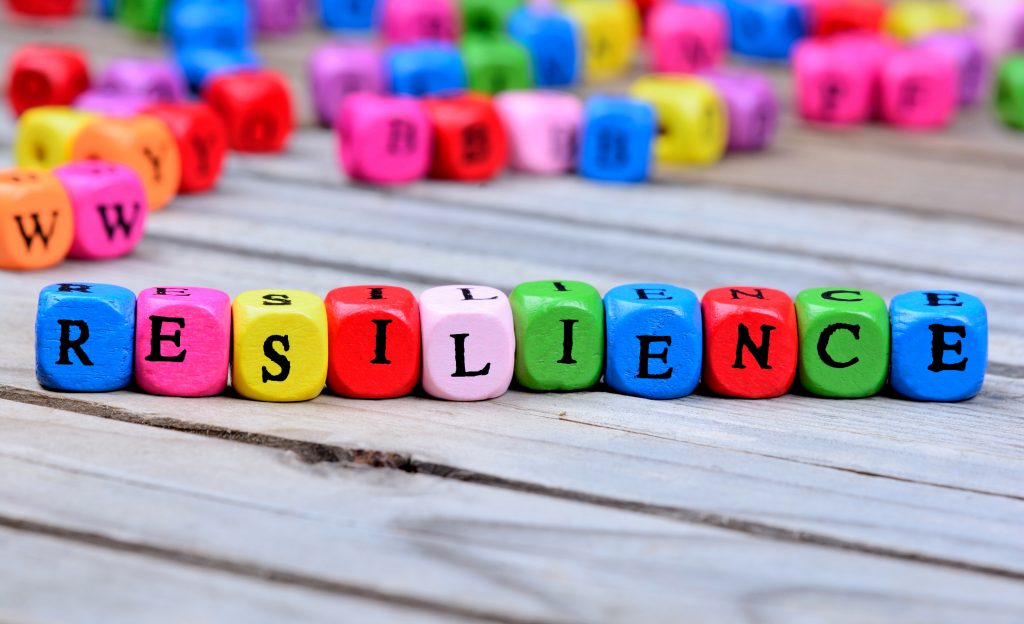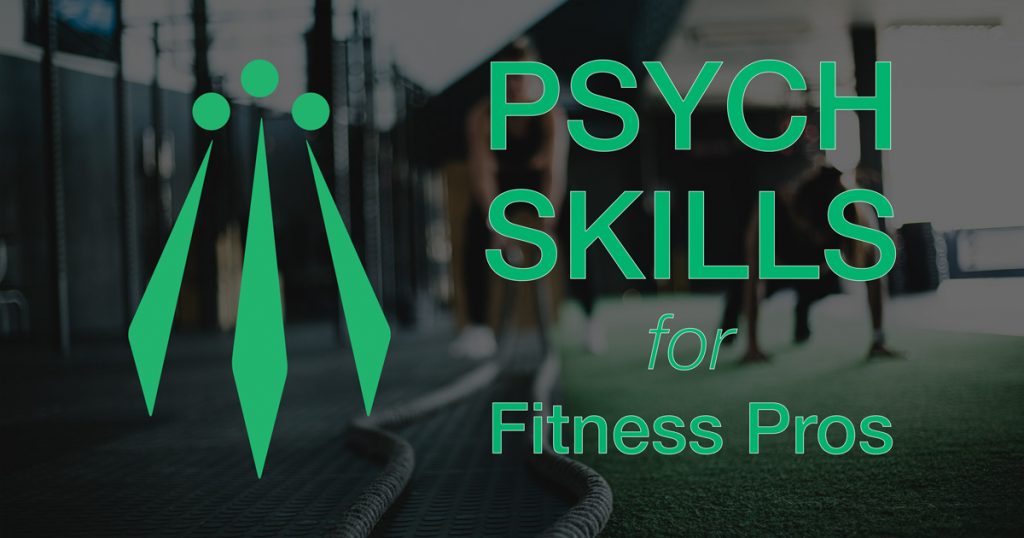Today’s guest post comes courtesy of Dr. Lisa Lewis (AKA my wife).
Earlier this year she released her Psych Skills for Fitness Professionals course which was designed to help fill a gap where many fitness professionals lack formal education: psychology, motivation, and the “softer skills” needed to coach effectively and help clients attain their goals.
I’ve long noted that what burns and stresses most coaches/trainers out isn’t the x’s and o’s of program design or breaking down someone’s squat technique…
…rather, it’s the ongoing attempts to maneuver around the dark recesses of our clients’ psychological needs (particularly when it comes to motivation).
Of more relevance, COVID-19 has really done a number on just about everyone’s life in 2020 and the importance of motivation, healthy habits, and resilience through stress and uncertainty has never been more apparent.
Lisa has just opened up enrollment for her course, with a NEW, just-added module focusing on how fitness professionals can better build immunity to stress and uncertainty for themselves AND their clients/athletes.
If no foreplay is needed, you can dive right in HERE.
For a little more insight read below…

Copyright: deeaf / 123RF Stock Photo
Building & Sustaining Resilience
Worry.
Fear.
Crisis.
Stress.
Uncertainty.
In 2020, this sequence of emotions, and the resulting toll they take is familiar to us all. Whether your personal, professional, or financial life has been stressed, shaken, or stamped out by the pandemic, chances are you have been significantly impacted by closings, stay-at-home orders, and social-distancing mandates.
When we have a stressful day, most of us can cope well.
We may become flustered, negative, or pessimistic, but a trusted coping strategy can typically help us to recover and turn the page quickly, like dinner with friends, a big hug from a loved-one, a good training session, or a hot bath.
But when days turn into weeks, and weeks into months, we all need more than a good pump and steamy soak in the tub. We need skills that can help us to persist.
To maintain hope.
To help us access our strengths in the face of long term adversity.
Starting in April and May of this year, I have been asked to contribute to articles and podcasts on “coping with the pandemic,” or “coping with stress,” or some similar topic.
As a psychologist, these requests and their resulting discussions and writings led me to explore the current literature on resilience, and this in turn focused my attention on the field of positive psychology.
Over the past 20 years, positive psychology has offered evidence-based recommendations for living well, coping effectively, and thriving (Peterson, 2006). The benefits of optimism, positive emotions, personal strengths, gratitude, meaning, healthy relationships and other optimal experiences in life have been examined, evaluated, and clearly identified as real, measurable, and worth-while.
This research, and the resulting recommendations for coping and living well offer a rich variety of skills that are relevant, important, and even essential in the current climate.
For example, as I read up on how to build and sustain resilience, I learned about “mental agility” from Karen Reivich (2002), who explains that we can learn and practice thinking flexibility and more effectively. Reivich states that by recognizing our tendencies to think in overly-rigid ways, intentionally changing direction, and carefully planning for negative outcomes, we can be more productive, efficient, and hardy in difficult situations.
Dr. Karen Reivich
The same way fitness professionals and enthusiasts can practice skills and drills for physical agility, so too can we work on mental agility.
If your thinking sometimes gets you stuck in negative, ruminative, unhelpful patterns of all-or-nothing, catastrophizing, or “poor me” thinking, then working on your mental agility could help you to think more objectively, effectively, and productively.
In addition to mental agility, challenging life events require us to not only work on our deficits, but also to draw on our strengths. In my work with patients, clients, and fitness professionals, I’ve found that most people gravitate toward addressing weaknesses, blindspots, or shortcomings in their thoughts and behaviors. However, understanding and leveraging the best of you is also a rich and potent source of resilience (Petersen & Seligman, 2004). Your personal character strengths can contribute to coping and even thriving in adversity – especially now!
Whether they be optimism, diligence, spirituality, or a great sense of humor, the best of you has so much to offer in the face of the worst times in life.
Do you know how to practice flexible, agile thinking?
Are you familiar with your character strengths? Do you appreciate them and harness them intentionally in the face of adversity?
This summer, I’ve designed a curriculum for developing and practicing these skills, and added them, for free, to my Psych Skills for Fitness Pros course. This curriculum has been included as a bonus module for students of Psych Skills for Fitness Pros, and covers the following content:
- An Introduction to Resilience
- Optimism
- Mental Agility
- Character Strengths
- Implementation and Practice
In addition, this bonus module includes an interview with Mike T. Nelson, Ph.D., who discusses the concept of anti-fragility, and it’s parallel to stress hardiness and resilience! Dr. Mike and I explore the physical and psychological benefits of anti-fragility, as well as how to promote anti-fragility with your clients.
All of this free content is an addition to the existing Psych Skills for Fitness Pros, Volume 1: Motivate and Facilitate Change. If you haven’t heard about the course before, you can learn more HERE.
Psych Skills for Fitness Pros offers not only a review of theory and research, but also real life applications for coaches in fitness, wellness, and nutrition. Here’s what a recent graduate of the program had to say about her experience in the course:
“Coaching is about so much more than exercise selection and macros. I’m always looking to get better at the psychological side of coaching so that I can help my clients actually make the changes they want to make. Psych Skills for Fitness Pros was exactly what I needed. It was not just theoretical, but practical. “Here are the theories and here’s how you can use them in your day to day work.”
As a result of practicing the skills Lisa teaches I am better at meeting clients where they’re at with regards to motivation while helping them to develop along the motivation continuum and using motivational interviewing techniques such as helping clients work through their ambivalence. You will without a doubt be a better coach after taking this course.”
– Kim Schlag
Personal Trainer and Nutrition Coach
Resilience.
Optimism.
Mental Toughness.
Mental Agility.
Character Strength.
For the rest of 2020, and beyond, these skills and assets are what I hope you can draw from, lean on, and utilize to cope with the pandemic and all that it brings. But even more than that, I hope we can all develop more strength, agility, and skill as a result of having to cope with the pandemic. If we can endure this year, good – but if we can thrive and improve ourselves as a result of it, great!
Please read more about Psych Skills for Fitness Pros, Volume 1, HERE.
If you want to see more of my writing and approach to interlacing strength training and physical activity with mental skills and positive psychology, follow me on Instagram, HERE. If you want to learn more about positive psychology, mental agility, and/or character strengths, check out the fabulous content at the Positive Psychology Center at UPenn, HERE.
References
Peterson, C. & Seligman, M. (2004). Character Strengths and Virtues: A Handbook and Classification. Oxford University Press: NY.
Peterson, C. (2006). A Primer in Positive Psychology. Oxford University Press: NY.
Reivich, K. & Shatte, A. (2002). The Resilience Factor: 7 keys to finding your inner strength and overcoming life’s hurdles. Broadway Books: NY.
The post Building and Sustaining Resilience appeared first on Tony Gentilcore.
Building and Sustaining Resilience posted first on tonygentilcore.com


No comments:
Post a Comment